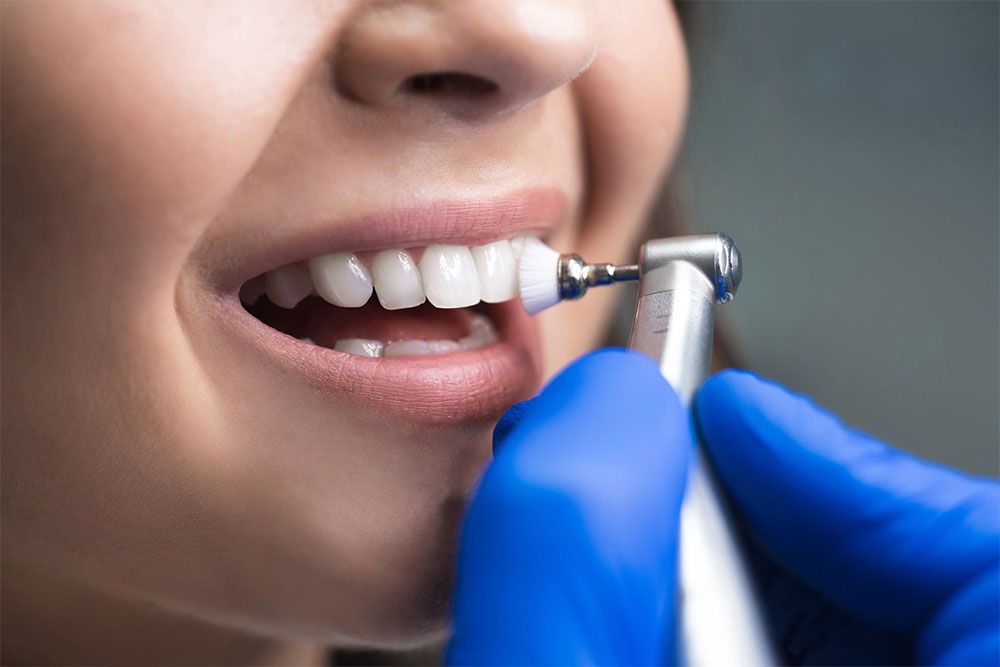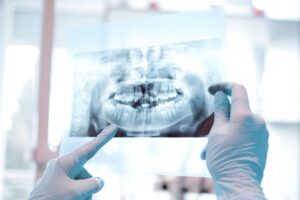The Importance of Regular Dental Exams:
Your Path to a Healthy Smile
Maintaining a healthy smile goes beyond daily brushing and flossing; it also involves routine dental exams. Regular evaluations with your dentist are crucial for ensuring great oral health and catching potential issues before they become serious problems. Here’s why dental exams are an essential part of your healthcare routine.

Routine Evaluations with Your Dentist
Routine dental exams are comprehensive check-ups performed by your dentist to assess the overall health of your teeth and gums. During these visits, your dentist will thoroughly examine your mouth, looking for signs of decay, gum disease, oral cancer, and other dental issues. These exams are recommended every six months to help keep your smile in top condition and allow your dentist to track any changes in your oral health over time.
Answer Questions with the Doctor
One of the significant benefits of routine dental exams is the opportunity to communicate directly with your dentist. These appointments provide the perfect time to ask any questions or express concerns you may have about your oral health. Whether you’re experiencing discomfort, noticing changes in your teeth, or need advice on dental hygiene practices, your dentist is there to provide answers and guidance. This open communication ensures that you are fully informed about your dental health and can make well-informed decisions.
Detect Problems Early On
Early detection is key to preventing serious dental issues. During a dental exam, your dentist can identify problems at their earliest stages, such as cavities, gum disease, or oral cancer. Catching these issues early on means they can be treated more effectively, often with less invasive and more cost-effective methods. Regular dental exams are a proactive approach to maintaining your oral health and preventing more significant problems down the line.
Assess Treatment Options if Needed
If any issues are detected during your dental exam, your dentist will discuss the best treatment options available. From simple fillings and cleanings to more advanced procedures like root canals or orthodontics, your dentist will work with you to develop a personalized treatment plan. This collaborative approach ensures that you receive the care you need to restore and maintain a healthy, beautiful smile.
Preventative care is a foundation of dentistry. The American Dental Association recommends visiting your dentist regularly – usually about twice yearly – for full cleanings, examinations, and consultations for potential treatment. Professional dental cleanings help remove built-up plaque that is not removable using conventional brushing and flossing. Often, dentists are also capable of identifying potential problems that patients are not yet able to see or feel. When you maintain regular preventative dental appointments, you can stave off decay and gum disease, as well as identify the beginnings of oral health problems before they become severe.
Did you know…
that Americans are less and less likely to visit the dentist as they age? Data from the Centers for Disease Control reports that only 57 percent of Americans over age 65 visited the dentist in 2010. That compares to about 61 percent adults under age 65 and about 79 percent of children ages 2 to 17. Nonetheless, it is important to visit the dentist for cleanings and exams regardless of how long has passed since your most recent dental appointment.
Frequently Asked Questions
Do I really need to have my teeth professionally cleaned?
Yes. Even if you brush and floss after every meal and before bed, bacteria-harboring plaque can accumulate in the tiniest crevices, grooves and pits. Overtime, the teeth will begin to decay in those areas, which may result in pain and partial or total tooth loss.
What should I expect at my cleaning and exam consultation?
Your cleaning and consultation will consist of a visible examination of the teeth and gums. If you haven’t been to the dentist in a while, you may also require x-rays for a more comprehensive view of your teeth. You’ll also consult with your dentist about any oral health problems you may have been having or questions that you may have. The cleaning will follow, during which a dental hygienist will use special instruments to remove hardened plaque from your teeth. Finally, your teeth will be polished before your dentist discusses any treatment recommendations he or she may have for you.
What types of guidelines should I follow after my visit?
In between dental cleanings and consultations, be sure to maintain good oral habits at home. This includes daily flossing and brushing after meals. It’s also important to drink fluoridated water and use a fluoridated toothpaste.





